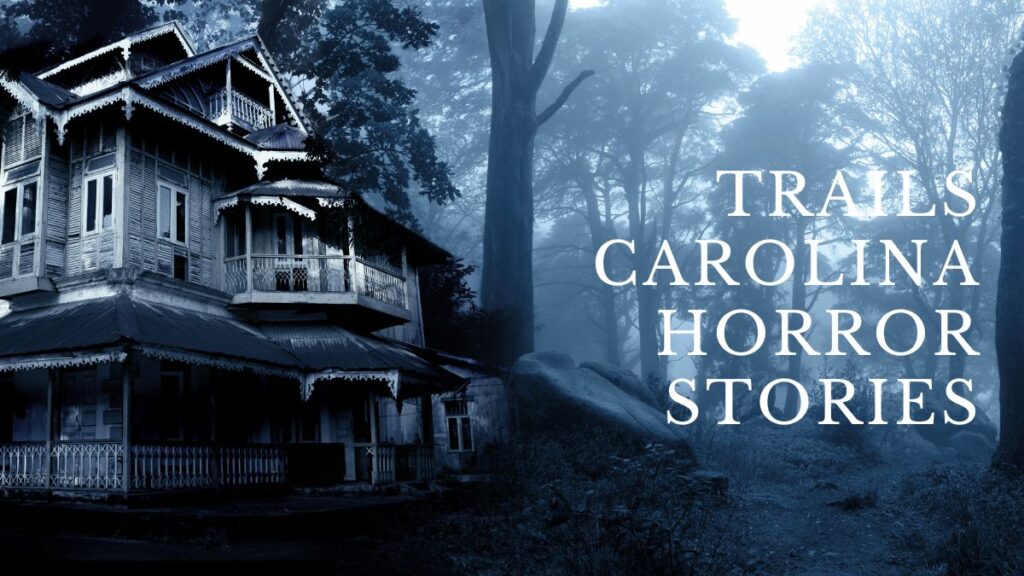
Introduction:
Trails Carolina, nestled in the heart of North Carolina’s wilderness, has long been lauded for its therapeutic approach to youth rehabilitation. Yet, beneath its picturesque facade lies a tapestry of horror stories that have shaken the very foundation of its reputation. As allegations of abuse, negligence, and malpractice surface, the spotlight is cast not only on Trails Carolina but also on the wider wilderness therapy industry. In this exposé, we delve into the dark underbelly of Trails Carolina, examining the stories of horror that have emerged and the implications they hold for the youth and families entrusting their well-being to such programs.
The Promise of Therapy in the Wilderness:
Wilderness therapy programs like Trails Carolina promise a transformative journey for troubled youth. By immersing participants in the rugged beauty of nature, these programs aim to facilitate personal growth, emotional healing, and behavioral change. For many families, Trails Carolina represents a beacon of hope in navigating the challenges their children face.
However, behind the idyllic scenery lies a reality marred by allegations of misconduct and mistreatment. Reports of physical and emotional abuse, negligence in safety protocols, and questionable therapeutic practices have cast a pall over Trails Carolina and raised serious concerns about the well-being of its participants.
Unraveling the Horror Trails Stories:
The horror stories emerging from Trails Carolina paint a disturbing picture of life within the program. Accounts from former participants detail instances of verbal and physical abuse by staff members, including allegations of being subjected to harsh punishment and isolation tactics. These practices, intended to instill discipline, often result in psychological trauma and exacerbate the very issues the program purports to address.
Furthermore, concerns have been raised about the lack of oversight and accountability within Trails Carolina. With minimal regulation governing the wilderness therapy industry, there is little to prevent the exploitation of vulnerable youth or hold programs accountable for their actions. As a result, families are left grappling with the aftermath of entrusting their loved ones to programs that prioritize profit over the well-being of their participants.
The Veil of Secrecy: Allegations and Investigations
Delving deeper into the horror stories surrounding Trails Carolina reveals a disturbing pattern of alleged misconduct and abuse. Reports from former participants and whistleblowers shed light on the darker side of the program, raising serious concerns about the safety and well-being of its youth.
Investigations into these allegations have been initiated by both internal and external entities, including regulatory bodies and independent watchdog organizations. These investigations aim to uncover the truth behind the claims of abuse and hold accountable those responsible for any wrongdoing.
However, the challenge lies in the inherent secrecy of wilderness therapy programs like Trails Carolina. Operating in remote locations with limited oversight, these programs often operate behind closed doors, shielded from public scrutiny. Breaking through this veil of secrecy is essential to ensuring that justice is served and that the voices of victims are heard.
A Legacy of Trauma: Impact on Participants’ Lives
For many participants of Trails Carolina, the horror stories they experienced during their time in the program leave a lasting legacy of trauma. The psychological and emotional scars inflicted by abuse and mistreatment can have profound effects on their lives long after they have left the wilderness.
These traumatic experiences can manifest in various ways, including post-traumatic stress disorder (PTSD), depression, anxiety, and difficulty forming trusting relationships. The road to recovery is often fraught with challenges, requiring extensive therapy and support to overcome the trauma inflicted by Trails Carolina.
Furthermore, the impact of Trails Carolina’s horror stories extends beyond individual participants to their families and loved ones. Parents are left grappling with feelings of guilt and betrayal for having entrusted their children to a program that failed to protect them. Rebuilding trust and repairing the damage caused by Trails Carolina’s misconduct can be a daunting and painful process for all involved.
Demanding Accountability: Advocacy and Reform Efforts
In response to Trails Carolina’s horror stories, advocacy groups, grassroots organizations, and concerned individuals have mobilized to demand accountability and reform within the wilderness therapy industry. These efforts aim to shine a light on the abuses perpetrated by programs like Trails Carolina and push for systemic change to prevent such atrocities from happening again.
Key demands include increased transparency and oversight, the implementation of rigorous standards and regulations, and greater access to alternative therapeutic options that prioritize the safety and well-being of participants. Advocates are also calling for greater involvement of survivors in shaping the future of wilderness therapy, ensuring that their voices are heard and their experiences validated.
By working together to advocate for change, we can hold programs like Trails Carolina accountable for their actions and create a safer and more ethical environment for youth rehabilitation. It is only through collective action and unwavering determination that we can prevent further harm and ensure that all youth have access to the care and support they need to thrive.
Charting a New Course: Towards Ethical Wilderness Therapy
As the fallout from Trails Carolina’s horror stories reverberates throughout the wilderness therapy industry, there is a growing recognition of the need to chart a new course towards ethical and responsible practices. This involves reimagining wilderness therapy as a holistic and empowering experience that prioritizes the safety, dignity, and well-being of participants.
Central to this endeavor is the development of comprehensive standards and guidelines that govern the operation of wilderness therapy programs, ensuring that they adhere to best practices and ethical principles. This includes robust training and supervision for staff members, clear protocols for handling allegations of abuse, and mechanisms for ensuring accountability and transparency.
Additionally, there is a renewed focus on the importance of trauma-informed care and evidence-based interventions within wilderness therapy settings. By incorporating principles of trauma sensitivity and therapeutic efficacy into their programs, providers can create an environment that fosters healing and growth while minimizing the risk of harm to participants.
Ultimately, the goal is to reimagine wilderness therapy as a force for good in the lives of troubled youth, providing them with the support, guidance, and resources they need to overcome their challenges and realize their full potential. By embracing a culture of accountability, transparency, and compassion, we can ensure that the promise of therapy in the wilderness is fulfilled in a manner that honors the dignity and humanity of all who seek its refuge.

The Impact on Youth and Families:
The repercussions of Trails Carolina’s horror stories extend far beyond its participants. Families who placed their trust in the program are left reeling from the realization that their children were subjected to harm under the guise of therapy. The trauma inflicted by such experiences can have long-lasting effects on the mental and emotional health of both the youth and their families, further exacerbating the challenges they initially sought to address.
Moreover, the prevalence of horror stories within Trails Carolina raises broader questions about the efficacy and ethics of wilderness therapy as a whole. While proponents argue that immersion in nature can facilitate healing and growth, the darker realities of abuse and mistreatment cast doubt on the validity of such claims. Without proper standards and oversight, the wilderness therapy industry risks becoming a breeding ground for exploitation and harm.
The Call for Action:
In the wake of Trails Carolina’s horror stories, calls for investigation and reform have grown louder. Families, advocacy groups, and concerned individuals are demanding greater transparency, accountability, and regulation within the wilderness therapy industry. Investigations into allegations of abuse and misconduct must be conducted swiftly and thoroughly, with consequences for those found responsible.
Furthermore, there is an urgent need for increased support for alternative therapeutic approaches that prioritize the well-being and safety of participants. Rather than subjecting vulnerable youth to potentially harmful practices, programs should focus on evidence-based interventions that promote healing and growth in a safe and nurturing environment.
Conclusion:
Trails Carolina’s horror stories serve as a stark reminder of the dangers lurking within the wilderness therapy industry. As allegations of abuse and misconduct continue to surface, it is imperative that we confront the underlying issues plaguing these programs and work towards meaningful change. By holding programs accountable for their actions and advocating for the well-being of participants, we can strive to create a safer and more ethical landscape for youth rehabilitation. Only then can we ensure that the promise of therapy in the wilderness is upheld without sacrificing the safety and dignity of those it seeks to serve.



